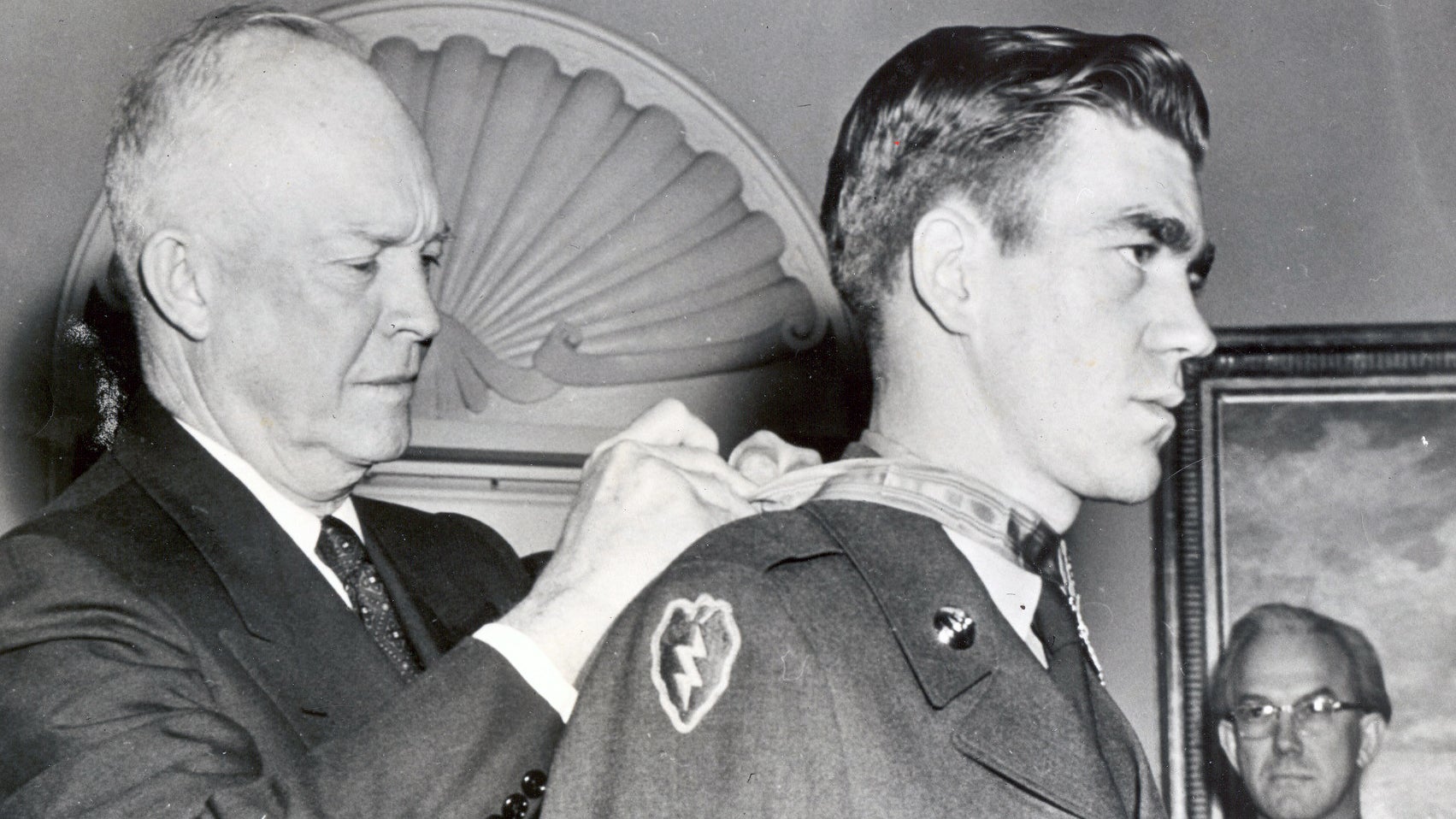Korean War Hero, Medal of Honor Recipient Dies
Korean War Hero, Medal of Honor Recipient Dies

Ernest West, who received the Medal of Honor for his actions during the Korean War, has died. He was 89.
A native of Russell, Kentucky, and honorary life member of the Association of the U.S. Army, West died May 1 at St. Mary's Medical Center in Huntington, West Virginia.
On Oct. 12, 1952, West, a private first class with the 3rd Battalion, 14th Infantry Regiment, 25th Infantry Division, volunteered to join a combat patrol near Sataeri, Korea, to look for an enemy outpost.
West and three other soldiers were scouting ahead of the main group when they were ambushed and suffered “numerous casualties,” according to his Medal of Honor citation and an account by the Congressional Medal of Honor Society.
After the unit’s leader, 1st Lt. George Gividen, was injured by grenades and small-arms fire, West ordered the patrol to fall back. He then “braved intense fire” to reach his wounded leader, the citation says.
While evacuating Gividen, West was attacked by three enemy soldiers. Covering the lieutenant’s body with his own, West “killed the assailants with his rifle, then carried the helpless man to safety,” losing his left eye in the process, according to the citation.
Despite his injuries, West “courageously returned through withering fire and bursting shells to assist the wounded.” While saving two members of his unit, he killed three more enemy soldiers, the citation says.
West recuperated at Walter Reed Army Medical Center in Washington, D.C., before receiving the Medal of Honor, the nation’s highest award for valor, from President Dwight Eisenhower on Jan. 12, 1954, The Washington Post reported.
It was an award West initially didn’t want, according to the Congressional Medal of Honor Society. In an interview, he said, “I’ll tell you this, I turned it down. I wasn’t going to go get it. I thought everybody ought to have one. … I did not consider myself a hero.”
Of the battle where he earned the Medal of Honor, according to the Post, West said, “We didn’t leave nobody. I was raised that way. I always figured that someone would come to get me if that were to happen, if I got down. I’d say it was because of brotherhood we all got back.”

